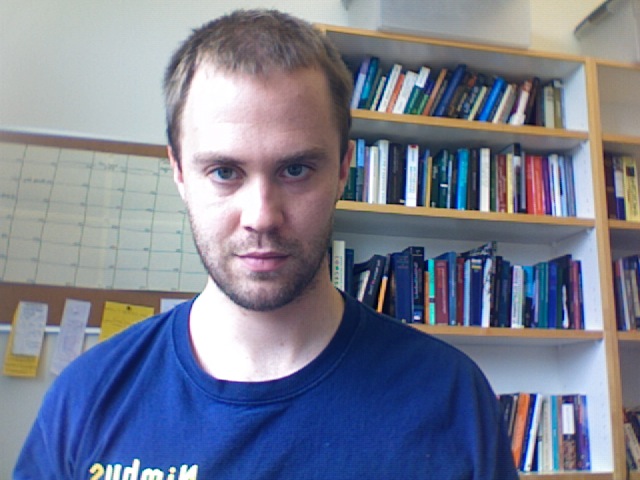Experimental field tries to unlock philosophical questions with quantitative methods
Open gallery

This fall Lewis & Clark will offer its first course in experimental philosophy, a new sub-field of philosophy established within the past 15 years. The approach applies quantitative research methods to philosophical questions about human experience, motivation, and value. The field has caused a stir in traditional philosophy circles and garnered media attention from outlets such as the New York Times, Slate and National Public Radio.
Some experts in the field of experimental phiilosophy experts argue that there are practical applications for the approach for areas such as business and legal affairs. For example, Joshua Knobe’s research on how people understand intentional action raises important questions about when it is just for someone be held legally responsible for their actions.
Mellon Postdoctoral Fellow Michael Bruno from the University of Arizona who will teach the experimental philosophy course addresses the impact of this emerging field on philosophy and what he hopes students gain from the course.
Q: Doesn’t experimental philosophy upset romanticized notions of philosophy as a, well, philosophical pursuit?
A: Perhaps, but only those conceptions of philosophy as fundamentally different from other forms of inquiry. There are plenty of independent reasons to be suspicious of such conceptions of philosophy as autonomous in this way.
Q:Do you think experimental philosophy will continue to grow in popularity and find a permanent place in philosophy departments?
A: Experimental philosophy will likely continue to grow in popularity in the short term. In the long term, it’s hard to say. While empirically or scientifically informed philosophy is clearly here to say, ‘experimental philosophy’ is a relatively new movement that tends to employ certain research techniques that have proven fruitful within psychology. While much of the work that has been done using these techniques is exciting and illuminating, it must be acknowledge that new research programs often fail for unforeseen reasons. In light of that, it’s probably too early to say whether experimental philosophy will become a permanent fixture within academic philosophy.
Q: Given experimental philosophy’s hands-on approach, what kinds of things can students expect to do in your class?
The course will be broken up into five topical areas including:
- Introduction to Experimental Philosophy: Research on Intentional Action
- Background Methodological Issues
- Research on Cross-cultural Differences in Folk Intuitions
- Research on Free Will, Moral Responsibility, and Determinism
- Experimental Philosophy of Consciousness
The main book for the course will be Experimental Philosophy, edited by Knobe and Shaun Nichols, and a number of other articles. Students will write a major paper that proposes an experiment to test some specific philosophically interesting hypothesis. In some cases, it may be possible to conduct an actual quantitative study.
Q: Who is your favorite philosopher and why?
A: David Hume. I studied Hume’s A Treatise of Human Nature in depth shortly after I first became interested in philosophy. Hume’s thinking has shaped my own more than any other philosopher.
Q: What do you think he would think about experimental philosophy?
A: On one hand, Hume thought that experimental methods ought to be used to investigate the philosophical questions. Hence, it’s natural to think that he’d be a proponent of experimental philosophy. On the other hand, some of Hume’s specific views, e.g. on the relation of ideas, are likely in tension with the views of many contemporary experimental philosophers.
More Newsroom Stories
Public Relations is located in McAfee on the Undergraduate Campus.
MSC: 19
email public@lclark.edu
voice 503-768-7970
Public Relations
Lewis & Clark
615 S. Palatine Hill Road MSC 19
Portland OR 97219

